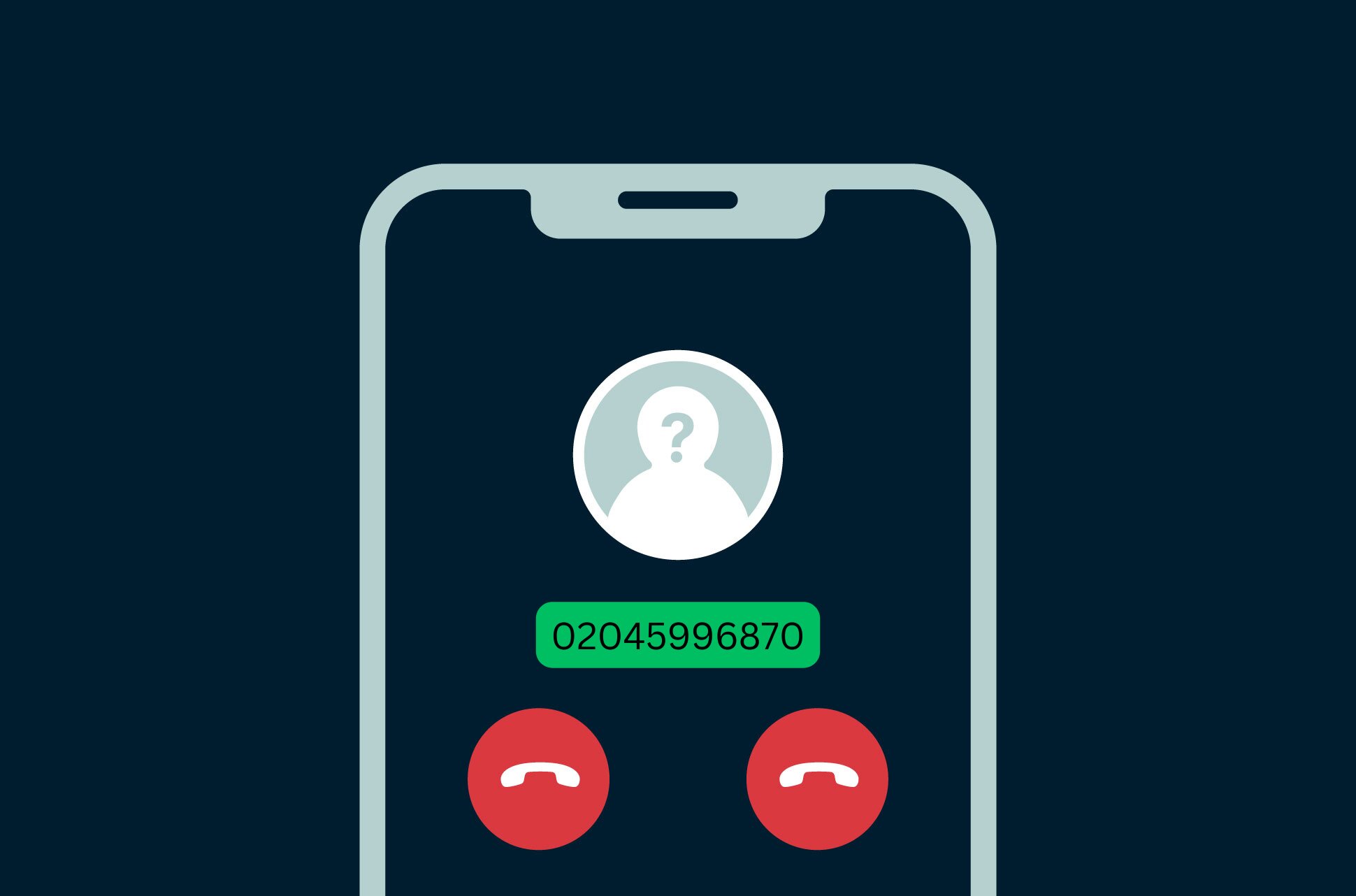In an age where technology connects us in myriad ways, it also opens avenues for deception and fraudulent activities. One such deceptive tool that has garnered attention is the fake phone number: 02045996870. Despite its appearance as a regular phone number, it serves as a gateway for scammers to engage in various illicit activities, ranging from sales calls to elaborate scams and spamming endeavors. This seemingly innocuous string of digits conceals a labyrinth of deceit, orchestrated by individuals and organizations with malicious intent. Understanding the intricacies of this fake number is paramount in safeguarding oneself against potential harm and financial loss.
Scammer Tactics and Uses
In today’s interconnected world, where technology facilitates communication at the touch of a button, there exists a shadowy realm inhabited by individuals with nefarious intentions. Among their arsenal of deceit lies a deceptive tool: the fake phone number. These numbers, such as the notorious 02045996870, serve as gateways for scammers to carry out their illicit activities, preying on unsuspecting individuals and organizations. To combat these threats effectively, it is essential to understand the tactics and uses employed by scammers in connection with such fake numbers.
Understanding Scammer Tactics
Scammers employ a variety of tactics to exploit fake phone numbers like 02045996870 for their malicious purposes. Here are some common strategies they use:
- Impersonation: Scammers often impersonate legitimate entities, such as government agencies, financial institutions, or well-known companies, using fake phone numbers to lend credibility to their schemes. By adopting a guise of authority or familiarity, they aim to deceive unsuspecting victims into divulging sensitive information or parting with their money.
- Phishing Scams: Phishing scams involve tricking individuals into revealing personal information, such as login credentials or financial details, by posing as trustworthy entities. Scammers use fake phone numbers to initiate phishing calls or send text messages, directing recipients to counterfeit websites or convincing them to provide sensitive data over the phone.
- Fraudulent Sales Calls: Fake phone numbers are frequently used by scammers to make unsolicited sales calls, offering products or services that are either nonexistent or of substandard quality. These fraudulent sales pitches often target vulnerable individuals, promising unrealistic benefits or discounts to entice them into making purchases or divulging payment information.
- Tech Support Scams: Scammers pose as tech support representatives, claiming to have detected issues with the recipient’s computer or software. They use fake phone numbers to contact potential victims, instructing them to download malicious software or grant remote access to their devices under the guise of providing assistance. Once access is obtained, they may install malware, steal sensitive data, or demand payment for unnecessary services.
- Social Engineering: Scammers leverage psychological manipulation techniques to exploit human emotions and vulnerabilities. They use fake phone numbers to instill a sense of urgency or fear in their victims, compelling them to act impulsively without questioning the legitimacy of the situation. By exploiting trust and empathy, scammers aim to elicit desired responses that further their malicious objectives.
Exploiting Fake Phone Numbers
Scammers utilize fake phone numbers like 02045996870 for a variety of nefarious purposes, including:
- Evasion of Detection: Fake phone numbers allow scammers to conceal their true identities and locations, making it difficult for law enforcement agencies or telecom providers to track and apprehend them.
- Mass Marketing: Scammers use automated dialing systems to make thousands of calls simultaneously, targeting a broad audience and increasing their chances of success in perpetrating scams or fraudulent schemes.
- Cost-Effective Communication: Fake phone numbers provide scammers with a cost-effective means of communication, allowing them to reach potential victims without incurring substantial expenses associated with traditional advertising or direct mail campaigns.
- Psychological Manipulation: Scammers exploit fake phone numbers to create a sense of urgency or legitimacy in their interactions with victims, increasing the likelihood of compliance with their demands or requests.
By understanding the tactics and uses employed by scammers in connection with fake phone numbers like 02045996870, individuals can better protect themselves against fraudulent activities and mitigate the risks associated with digital deception. Vigilance, skepticism, and awareness are essential in thwarting these malicious actors and safeguarding personal information and financial assets.
Origin and Operation

In the intricate web of scamming and fraudulent activities, understanding the origin and operation of deceptive tools like the fake phone number 02045996870 is crucial. Delving into the genesis of such numbers and dissecting how they function provides valuable insights into the mechanics of digital deception and empowers individuals to protect themselves against potential threats.
Unraveling the Origin of Fake Phone Numbers
The genesis of fake phone numbers like 02045996870 can be traced back to the evolving landscape of telecommunications and digital technology. As communication networks expanded and became more sophisticated, scammers seized upon the opportunity to exploit loopholes and vulnerabilities in these systems. They began employing tactics such as caller ID spoofing and voice-over-internet-protocol (VoIP) technology to create virtual phone numbers that appeared legitimate but were, in fact, conduits for fraudulent activities.
The proliferation of online platforms and marketplaces further fueled the demand for fake phone numbers, as scammers sought to establish a cloak of legitimacy in their interactions with potential victims. These numbers became indispensable tools in the arsenal of digital con artists, enabling them to carry out a wide range of scams and fraudulent schemes with relative impunity.
Operation of Fake Phone Numbers
The operation of fake phone numbers like 02045996870 hinges on a combination of technical ingenuity and social engineering tactics. Here’s a closer look at how these numbers are used by scammers to perpetrate their illicit activities:
- Caller ID Spoofing: Scammers use sophisticated software and VoIP technology to manipulate caller ID information, allowing them to display fake phone numbers during outgoing calls. This tactic creates the illusion of legitimacy and increases the likelihood that recipients will answer the call or respond to text messages.
- Virtual Phone Services: Fake phone numbers are often generated using virtual phone services or disposable phone number apps. These services provide scammers with temporary phone numbers that can be used for a limited time before being discarded, making it difficult for law enforcement agencies to track their activities.
- Geographical Disguise: Fake phone numbers can be assigned area codes from different regions or countries, further obscuring the true origin of the call. By using local area codes or toll-free numbers, scammers attempt to gain the trust of potential victims and evade suspicion.
- Automated Dialing Systems: Scammers leverage automated dialing systems to make thousands of calls simultaneously, targeting a broad audience and increasing their chances of success. These systems allow them to reach potential victims en masse and maximize their efficiency in perpetrating scams or fraudulent schemes.
Understanding the operation of fake phone numbers like 02045996870 is essential in combating digital deception and protecting oneself against potential scams and fraudulent activities. By remaining vigilant and informed, individuals can minimize their risk of falling victim to these insidious tactics and navigate the digital landscape with confidence.
Sales and Service Offerings
In the world of scamming and fraudulent activities, the fake phone number 02045996870 serves not only as a tool for deceit but also as a gateway for various sales and service offerings. Understanding the nature of these offerings sheds light on the tactics employed by scammers to entice unsuspecting individuals into their schemes. By examining the sales pitches and services promoted through this fake number, we can uncover the breadth of fraudulent activities facilitated by such deceptive practices.
Exploring Scammer Sales Tactics
Scammers are adept at leveraging the anonymity of fake phone numbers like 02045996870 to promote a wide range of products and services. Here’s a closer look at some of the common sales tactics employed by these digital con artists:
- Insurance Policies: Scammers often use fake phone numbers to promote bogus insurance policies, promising unrealistically low premiums or exaggerated coverage benefits. By preying on individuals’ desire for financial security, they lure unsuspecting victims into purchasing fraudulent insurance plans that offer little to no actual protection.
- Lottery Prizes and Sweepstakes: Another common sales pitch used by scammers is the promise of lottery prizes or sweepstakes winnings. They use fake phone numbers to inform recipients that they have won a substantial sum of money or valuable prizes, but must first pay a fee or provide personal information to claim their winnings. In reality, these lottery prizes are nonexistent, and the fees are simply a means for scammers to extract money from their victims.
- Technical Support Services: Scammers frequently pose as technical support representatives, offering to fix nonexistent computer or software issues. They use fake phone numbers to initiate contact with potential victims, claiming that their devices are infected with viruses or malware. In exchange for a fee, they offer to remotely access the victim’s computer and resolve the supposed issues. However, the services provided are often unnecessary or ineffective, and may even result in further harm to the victim’s device.
- Deceptive Marketing Offers: Fake phone numbers are also used to promote deceptive marketing offers, such as discounted products or services that do not actually exist. Scammers may use high-pressure sales tactics to convince individuals to make impulsive purchases or provide payment information over the phone. Once payment is made, the promised products or services are never delivered, leaving the victim with nothing to show for their money.
Service Offerings Exploited by Scammers
In addition to sales pitches, scammers exploit fake phone numbers like 02045996870 to offer various services that are often fraudulent or substandard. Here are some common service offerings promoted through these deceptive practices:
- Technical Support Scams: Scammers pose as technical support representatives, offering to fix nonexistent computer or software issues. They use fake phone numbers to initiate contact with potential victims, claiming that their devices are infected with viruses or malware. In exchange for a fee, they offer to remotely access the victim’s computer and resolve the supposed issues. However, the services provided are often unnecessary or ineffective, and may even result in further harm to the victim’s device.
- Financial Services: Scammers may use fake phone numbers to offer financial services such as loans, investments, or debt consolidation. They prey on individuals who are in financial distress or seeking quick solutions to their money problems. However, these services are often fraudulent, with hidden fees and exorbitant interest rates that can leave victims in even worse financial situations.
- Travel and Vacation Packages: Fake phone numbers are also used to promote fake travel and vacation packages, offering discounted rates on hotels, flights, or holiday packages. Scammers may use high-pressure sales tactics to convince individuals to book these supposed deals over the phone, only to disappear with their money once payment is made. Victims are left with no recourse for recovering their funds or securing the promised vacation.
Understanding the sales pitches and service offerings promoted through fake phone numbers like 02045996870 is essential in protecting oneself against potential scams and fraudulent activities. By remaining vigilant and skeptical of unsolicited offers, individuals can minimize their risk of falling victim to these deceptive practices and navigate the digital landscape with confidence.
Protecting Yourself from Scams

In an age where digital communication is ubiquitous, protecting oneself from scams has become increasingly important. The prevalence of deceptive practices, such as those facilitated by fake phone numbers like 02045996870, underscores the need for vigilance and awareness. By implementing proactive measures and adopting a skeptical mindset, individuals can safeguard their personal information and financial well-being from the clutches of scammers.
Heightening Your Defenses
Protecting yourself from scams requires a multifaceted approach that encompasses both technological safeguards and behavioral strategies. Here are some effective ways to fortify your defenses against fraudulent activities:
- Caller Verification Tips: Before engaging with a caller or responding to a text message, take steps to verify their identity. Ask for the caller’s name, company affiliation, and contact information. If the caller claims to represent a legitimate organization, independently verify their credentials by contacting the company through official channels.
- Message Content Investigation: Scrutinize the content of any messages received, especially those from unknown or suspicious sources. Be wary of unsolicited offers, requests for personal information, or demands for immediate action. If the message seems dubious or too good to be true, exercise caution and refrain from clicking on any links or providing sensitive data.
- Online Searches for Reports: Conduct online searches to check for reports or reviews related to the phone number in question. Websites dedicated to documenting scams and fraudulent activities often provide valuable insights into common tactics used by scammers. Additionally, search for any news articles or alerts regarding recent scams associated with the phone number.
- Consulting Service Providers: Reach out to your service provider or telecommunications company for insights and assistance. They may be able to provide information about the legitimacy of the phone number or offer guidance on blocking unwanted calls and messages. Utilize any tools or resources provided by your service provider to enhance your protection against scams.
- Trusting Your Instincts: Trust your instincts if something feels off during a communication or transaction. If a caller or message raises red flags or induces feelings of unease, err on the side of caution and terminate the interaction. It’s better to be safe than sorry when it comes to protecting yourself from potential scams.
Staying Ahead of the Scammers
As scammers continuously adapt and evolve their tactics, staying ahead of the game requires ongoing vigilance and awareness. Here are some additional tips to help you stay one step ahead of scammers:
- Stay Informed: Keep yourself informed about the latest scams and fraud trends by regularly checking reputable sources of information, such as government agencies or consumer protection websites. Knowledge is your best defense against falling victim to scams.
- Educate Others: Share information about common scams and fraud schemes with friends, family members, and colleagues. By raising awareness within your social circle, you can help protect others from falling prey to deceptive practices.
- Report Suspicious Activity: If you encounter suspicious activity or believe you have been targeted by a scammer, report it to the relevant authorities, such as the Federal Trade Commission (FTC) or your local law enforcement agency. Reporting scams helps authorities track and combat fraudulent activities, protecting others from potential harm.
By implementing these proactive measures and remaining vigilant in your interactions with others, you can significantly reduce your risk of falling victim to scams facilitated by fake phone numbers like 02045996870. Remember, protecting yourself from scams is a continual effort that requires diligence and awareness, but the peace of mind it brings is invaluable.
Caller Verification Tips
In today’s digital age, where scams and fraudulent activities are prevalent, it’s essential to be cautious when answering phone calls, especially from unfamiliar numbers. Fake phone numbers like 02045996870 are often used by scammers to deceive unsuspecting individuals. Here are some quick and effective caller verification tips to help you stay safe:
- Ask for Caller Information: If you receive a call from an unknown number, ask the caller for their name, company affiliation (if applicable), and contact details.
- Independently Verify Credentials: Take the time to independently verify the caller’s credentials, especially if they claim to represent a company or organization. Use official contact information obtained from reputable sources to confirm their identity.
- Cross-Check Caller Details: Use online search engines or professional networking platforms to cross-check the caller’s details against publicly available information. Look out for discrepancies that may indicate a potential scam.
- Utilize Reverse Phone Lookup: Consider using reverse phone lookup services to investigate the origin and ownership of the caller’s phone number. This can help you determine if the number is associated with known scams.
- Trust Your Instincts: If something feels off or suspicious during the call, trust your instincts and proceed with caution. It’s better to hang up and avoid providing personal information than to fall victim to a scam.
By following these caller verification tips, you can protect yourself from falling victim to scams and fraudulent activities perpetrated through fake phone numbers like 02045996870. Stay vigilant and prioritize your safety when answering calls from unknown numbers.
Message Content Investigation
In an era where digital communication is ubiquitous, scrutinizing message content has become paramount to safeguarding oneself against scams and fraudulent activities. Scammers often use sophisticated tactics to deceive individuals through text messages, emails, and other forms of digital correspondence. By employing effective message content investigation techniques, individuals can protect themselves from falling victim to deceptive schemes.
Analyzing Message Content
When assessing the content of a message, whether it’s a text message, email, or instant message, it’s essential to pay close attention to the following elements:
- Sender Information: Verify the identity of the sender by checking the sender’s email address or phone number. Be cautious of messages from unknown or suspicious senders, especially if they claim to represent reputable companies or organizations.
- Grammar and Spelling: Scrutinize the message for grammatical errors, spelling mistakes, or unusual language usage. Legitimate businesses and organizations typically maintain high standards of communication and are unlikely to send messages riddled with errors.
- Urgency and Pressure: Be wary of messages that create a sense of urgency or pressure you to act quickly. Scammers often use tactics such as claiming that immediate action is required to avoid negative consequences or promising unrealistic rewards to manipulate recipients into complying with their demands.
- Requests for Personal Information: Exercise caution when messages request sensitive personal information, such as passwords, account numbers, or Social Security numbers. Legitimate organizations typically do not ask for such information via unsolicited messages and usually provide secure channels for communication.
- Suspicious Links or Attachments: Avoid clicking on links or opening attachments in messages from unknown or untrusted sources. These could lead to malicious websites or download malware onto your device, compromising your security and privacy.
Enhancing Message Content Investigation
In addition to analyzing message content, there are several proactive measures you can take to enhance your ability to detect and mitigate potential scams:
- Use Security Software: Install and regularly update antivirus and anti-malware software on your devices to protect against malicious software and phishing attempts.
- Verify Information Independently: If you receive a message that raises suspicions, independently verify the information provided through trusted sources. Contact the purported sender directly using official contact information obtained from their official website or other reputable channels.
- Report Suspicious Messages: If you receive a message that you believe to be a scam or fraudulent, report it to the appropriate authorities, such as the Federal Trade Commission (FTC) or your email service provider. Reporting suspicious messages helps authorities track and combat fraudulent activities, protecting others from falling victim to similar scams.
- Educate Yourself and Others: Stay informed about common scam tactics and share this knowledge with friends, family members, and colleagues. Educating others about message content investigation techniques and scam awareness can help protect them from falling prey to deceptive schemes.
By implementing effective message content investigation techniques and remaining vigilant when assessing digital communication, you can protect yourself from scams and fraudulent activities perpetrated through deceptive messages. Remember to trust your instincts and prioritize your security and privacy when interacting with digital correspondence.
Online Searches for Reports

In the digital age, where information is readily accessible at our fingertips, harnessing the power of online searches can be instrumental in protecting oneself from scams and fraudulent activities. Scammers often leave digital footprints that can be uncovered through diligent online investigation. By leveraging online searches for reports related to suspicious activities, individuals can gather valuable insights and take proactive measures to safeguard their personal information and financial well-being.
Leveraging Online Search Engines
Online search engines serve as powerful tools for uncovering reports and information related to suspicious activities, including scams and fraudulent schemes. Here’s how you can leverage online searches to gather relevant information:
- Researching Phone Numbers: If you receive a call or message from a suspicious phone number, use online search engines to look up reports or reviews associated with that number. Websites dedicated to documenting scam phone numbers often provide valuable insights into common tactics used by scammers and may contain user-generated comments or reviews detailing others’ experiences.
- Checking for Scam Alerts: Stay informed about the latest scam alerts and reports by searching for news articles, blog posts, or alerts from reputable sources. Government agencies, consumer protection organizations, and cybersecurity firms often publish warnings and updates about emerging scams and fraudulent activities.
- Scanning Online Forums and Communities: Explore online forums, discussion boards, and social media groups dedicated to scam awareness and consumer protection. These platforms provide opportunities to share and exchange information about suspicious activities, as well as seek advice and guidance from other members who may have encountered similar scams.
- Verifying Company Information: When dealing with unfamiliar companies or organizations, use online searches to verify their legitimacy and reputation. Look for customer reviews, ratings, and feedback from other consumers to assess the credibility of the company and its products or services.
Taking Proactive Measures
In addition to gathering information through online searches, there are several proactive measures you can take to protect yourself from scams and fraudulent activities:
- Stay Informed: Keep yourself informed about common scam tactics, emerging threats, and scam alerts by regularly checking reputable sources of information, such as government agencies, consumer protection websites, and cybersecurity blogs.
- Educate Others: Share information about scam awareness and prevention with friends, family members, and colleagues. By raising awareness within your social circle, you can help protect others from falling victim to deceptive schemes.
- Report Suspicious Activities: If you encounter suspicious activities or believe you have been targeted by a scammer, report it to the relevant authorities, such as the Federal Trade Commission (FTC) or your local law enforcement agency. Reporting scams helps authorities track and combat fraudulent activities, protecting others from potential harm.
By leveraging online searches for reports and staying informed about common scam tactics, individuals can empower themselves to detect and avoid scams and fraudulent activities perpetrated through various digital channels. Remember to exercise caution and skepticism when interacting with unfamiliar entities online, and prioritize your security and privacy at all times.
Consulting Service Providers

When it comes to navigating the complex landscape of scams and fraudulent activities, seeking guidance from service providers can be invaluable. Service providers, including telecommunications companies and internet service providers (ISPs), offer resources and expertise to help individuals identify and mitigate potential risks. By consulting service providers, individuals can gain insights into emerging threats, access tools for protecting their personal information, and receive assistance in addressing suspicious activities.
Engaging with Telecommunications Companies
Telecommunications companies play a crucial role in helping consumers safeguard against scams and fraudulent activities. Here are some ways to leverage the expertise of telecommunications providers:
- Caller Identification Services: Many telecommunications companies offer caller identification services that help users identify incoming calls and screen out potential scams. By enabling these services, users can see the caller’s number and, in some cases, the associated name before answering the call.
- Call Blocking and Filtering: Service providers may offer call blocking and filtering features that allow users to block unwanted calls from known scam numbers or filter out suspicious calls based on predefined criteria. These features help users avoid engaging with potential scammers and reduce the risk of falling victim to fraudulent activities.
- Reporting Suspicious Activities: Telecommunications companies often provide channels for reporting suspicious activities, such as scam calls or messages. By reporting such incidents to the service provider, users contribute to the detection and prevention of scams, helping to protect themselves and others from potential harm.
Leveraging Internet Service Providers (ISPs)
Internet service providers (ISPs) also play a vital role in combating scams and fraudulent activities in the online realm. Here’s how individuals can benefit from consulting ISPs:
- Email Filtering and Security: ISPs may offer email filtering and security services that help users detect and block phishing attempts, malware-laden attachments, and other suspicious email activities. By enabling these services, users can enhance their email security and reduce the risk of falling victim to phishing scams.
- Web Browsing Protection: Some ISPs provide web browsing protection features that help users identify and avoid malicious websites known for hosting scams or distributing malware. These features can help users stay safe while browsing the internet and protect their devices from potential threats.
- Technical Support and Assistance: ISPs often offer technical support and assistance to users who encounter suspicious activities or experience security-related issues. By reaching out to their ISP for guidance, users can receive expert advice on how to address security concerns and protect their online accounts and devices.
Seeking Guidance and Assistance
In addition to the services mentioned above, individuals can also seek guidance and assistance from other service providers, such as banks, financial institutions, and cybersecurity firms. These entities may offer resources, educational materials, and support services to help individuals identify and mitigate the risks associated with scams and fraudulent activities.
By consulting service providers and leveraging their expertise and resources, individuals can enhance their ability to detect and protect themselves against scams and fraudulent activities. Remember to stay vigilant, report suspicious activities promptly, and prioritize your security and privacy when interacting with service providers and other entities online.
conclusion
In conclusion, safeguarding oneself against scams and fraudulent activities is a multifaceted endeavor that requires vigilance, awareness, and proactive measures. Throughout this article, we’ve explored various strategies for protecting against scams, including caller verification techniques, message content investigation, online searches for reports, and consulting service providers. By implementing these strategies and staying informed about common scam tactics, individuals can empower themselves to detect and avoid scams effectively.
It’s important to recognize that scams and fraudulent activities continue to evolve, with scammers employing increasingly sophisticated tactics to deceive unsuspecting victims. As such, maintaining a skeptical mindset and staying updated on emerging threats is essential for staying one step ahead of scammers.
Additionally, seeking guidance and assistance from service providers, such as telecommunications companies and internet service providers, can provide valuable resources and expertise in navigating the complex landscape of digital deception. By leveraging the tools and support offered by service providers, individuals can enhance their security posture and mitigate the risks associated with scams and fraudulent activities.
Ultimately, protecting oneself from scams requires a combination of knowledge, caution, and collaboration. By remaining vigilant, staying informed, and actively engaging with service providers and other resources, individuals can defend against scams and safeguard their personal information, financial assets, and peace of mind in an increasingly digital world.
FAQs
What is 02045996870?
02045996870 is a phone number that may be associated with various types of calls, including sales calls, scams, and spam activities.
Why am I receiving calls from 02045996870?
You may receive calls from 02045996870 for various reasons, including sales pitches, fraudulent schemes, or automated spam calls.
Is 02045996870 a legitimate phone number?
While 02045996870 may be a valid phone number, it is often used for suspicious or fraudulent activities, so caution is advised.
How do I know if calls from 02045996870 are scams?
Calls from 02045996870 may be scams if they involve unsolicited offers, requests for personal information, or high-pressure tactics to elicit a response.
What should I do if I receive a call from 02045996870?
If you receive a call from 02045996870, it’s best to be cautious. Avoid providing personal information and consider blocking the number if you believe it to be suspicious.
Are there any reported scams associated with 02045996870?
There may be reports of scams associated with 02045996870, including phishing attempts, lottery scams, or fake offers for goods and services.
Can I block calls from 02045996870?
Depending on your phone’s capabilities, you may be able to block calls from 02045996870 using call-blocking features or by adding the number to your block list.
Is it safe to answer calls from 02045996870?
It’s generally advisable to exercise caution when answering calls from unfamiliar numbers like 02045996870, as they may be associated with scams or spam.
Are there any legitimate reasons for receiving calls from 02045996870?
While legitimate businesses may use the number for sales or customer service purposes, it’s essential to verify the caller’s identity and intentions before engaging with them.
How can I report unwanted calls from 02045996870?
You can report unwanted calls from 02045996870 to your phone carrier, the Federal Trade Commission (FTC), or other relevant authorities to help combat fraudulent activities and protect others from potential scams.








